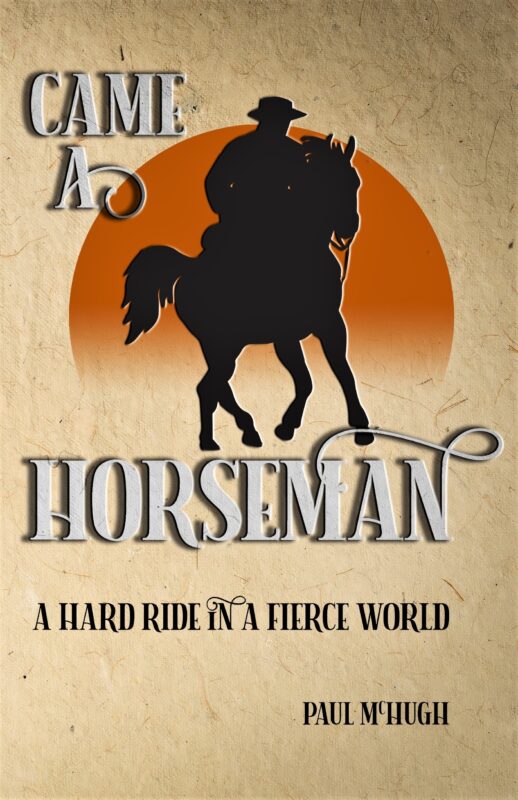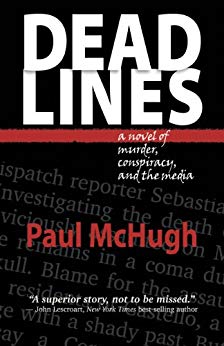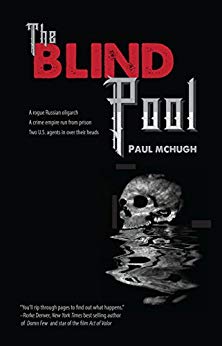Luftwaffe planes bomb the Oscarsborg fort near Oslo after Norway sank a German battle cruiser. It’s part of the start of WWII, and a scene in the opening of SPLINTER

Like the prospect of a gallows, the Russia vs Ukraine war ought to concentrate our thoughts about our response to conflict or bloodshed. It’s certainly invigorated my thinking about my most recent novel, SPLINTER—causing me to analyze my own stance on violence.
I have to say, the last time I felt even a faint urge to share in any armed conflict between human beings, I was all of 16. This was while I was studying for the priesthood at a Catholic seminary.
Bailing out from that joint was a move I contemplated after many tense moments with the priests who ran it. Whilst casting about for a sufficiently noble alternative, I fantasized I might sign up with the U.S. military as soon as I came of age. Next, banners flying, I’d gallop off to battle all those godless Commies in Vietnam.
This martial daydream illustrates the paltry reasoning power available to a hormone-addled teenager. Especially, one fully programmed by his culture to imagine that easy solutions to large problems could reliably emerge from the barrel of a gun.
But why on earth should I decide that fighting was my default go-to, if waving Our Savior’s Cross around didn’t work out?

This seemingly frictionless shift underscores the hypocrisy of one supposedly seeking to serve as a disciple for the Prince of Peace. I take zero comfort in the fact that I didn’t dwell in the pit of such a deep contradiction by my lonesome. Adherents of Christianity by the millions have hung out in this dialectic dungeon for millennia. Perplexing phenomena such as the Crusades and the Spanish Inquisition didn’t exactly pop up out of a vacuum, y’know.
How can a lamentable human dilemma so endlessly endure?
Personally, I’ve found that it’s hard to square this type of circle by trying to pound your square peg into a round hole. Or, as our venerable hippie ancestors put it, way, way back in the day: “Killing for peace is like fucking for virginity.”
F. Scott Fitzgerald notoriously opined, “The test of a first-rate intelligence is the ability to hold two opposing ideas in mind at the same time and still retain the ability to function.”
Yeah, okay, sure, that might prove some sort of an IQ test, but only in a quixotic way.
How the heck do you know if you passed it? Or what your grade is?
Just maybe, genuine wisdom lies in choosing to remain a second-rate intelligence—and allowing yourself to be more consistent, internally. That would definitely be less troublesome.
WON’T YOU PLEASE COME TO CHICAGO

I spun my mental wheels in this muddle without making a great deal of headway—not until the notorious Chicago riots occurred at the Democratic National Convention in 1968. I wasn’t in the least bit surprised that those grubby, shaggy, leftist young demonstrators had clashed with police in the streets. But I was astounded when I heard that the police themselves had burst into hotel rooms occupied by youthful campaign workers for the antiwar, presidential candidates: senators George McGovern and Gene McCarthy. Whereupon, the invading cops clubbed these inoffensive worthies senseless.
Some news stories suggested the degree of mayhem inflicted by out-of-control officers exceeded that of hippie and yippie demonstrators by a huge margin. I could barely imagine one mantra chanted by these badge-bearers: “Kill the Commies!”—while they attacked American campaign volunteers.

In fact, I experienced real difficulty believing any of it. So, I went to a library and slowly paged through full narratives of that Chicago rampage in leading news magazines of the day: Time, then Newsweek, plus the most conservative of the lot, U.S. News & World Report. Ultimately, a Venn diagram of all three narratives appeared to me like a stacked Slinky—a tight series of overlapped rings.
And upon that hinge, over the next 24 hours, my politics proceeded to rotate 180 degrees.
WELL NOW WHAT CAN A POOR BOY DO?

In a year or so, I evicted myself from that seminary, grew my hair out down past my shoulders, and also became one of the putative “radicals” agitating against the Vietnam War. When President Nixon flew into Tallahassee to give a rah-rah speech highly in favor of that fight, I got clubbed about the head and shoulders by sheriff’s deputies while I struggled to haul back into our protest group another kid they had unjustly decided to yank out and arrest—I would guess, to make a fearful example for all the rest of us. Later, I found my own butt flung into Leon County’s greybar motel after I’d blocked a highway through town to protest Nixon’s sudden expansion of bombing across Southeast Asia.
This gave me a sobering moment to assess my situation. At the time, I was editor of Florida State’s student magazine. The university president had already threatened to expel me for printing an issue that raged over his decision to swipe our student activity fees and spend them on repainting the campus football stadium.
A fork in my path lay just ahead. I could continue to pitch my body into the gears of the machine in an attempt to jam it (à la Mario Savio), or note the fact that I owned a particular set of skills (à la Liam Neeson) I could apply to that selfsame task. Albeit in a rather different manner. I perceived that my use of words might be a more effective, enduring way to make my point. And I chose Plan B.
HEY, BULLY FOR YOU!

Ever since infancy, I’ve detested bullies of every stripe. I applied my opprobrium not just to your garden-variety schoolyard idiots, but also, eventually, to diplomats in silk ties and swallow-tail frock coats who sought to mask their depravity behind high rhetoric, propaganda, and various other styles of social gaslighting.
Among our globe’s most noxious forms of bullying, the “war of choice” stands out for its criminal mendacity as well as its insufferable hubris. All the more so when some flimsy, ginned-up “provocation” is cited as the casus belli. Hitler used a staged, phony attack on a German radio station to justify his assault on Poland in 1939, and a supposed duty to save Norway’s neutrality as a rationale to invade that country in 1940. (The latter case I vividly portray in the opening of SPLINTER.)

In my own time, a spurious “Gulf of Tonkin” incident was exaggerated to excuse U.S. escalation of involvement in Vietnam. And, of course, Saddam Hussein’s supposed creation of “weapons of mass destruction” was deployed by officials of the George W. Bush administration to validate the second Iraq war. In both of these cases, the ensuing degrees of insult and injury, of death and suffering, the profligate waste of national treasures, accompanied by wholesale demolitions of public faith and trust, all fully exemplified that ancient Biblical axiom: “Those who sow the wind shall reap the whirlwind.”
I’m also reminded of the cool calculation that Hillary Mantel’s fictional version of Cromwell would oft submit to Henry VIII: “War is always the most expensive option.”

Of course, Putin’s rationale for attacking Ukraine was a similarly fatuous bit of cheek. He claimed: this independent nation was actually a renegade province of Russia that should be reincorporated; that it was presently the bailiwick of neo-Nazis who posed a serious threat to Russia; and that Ukraine also functioned as a devoted proxy for the morally depraved West. Thus, Putin reluctantly found himself forced to attack in order to secure domestic tranquility by exorcising every one of these phantasms.
THE OTHER SIDE OF THE EQUATION
Okey-doke, now let’s tie that tactical boot onto a different foot. Let us say, you and your nation find yourselves abruptly attacked by one of these lie-spewing, hyper-violent entities. What’s your response? If you sincerely believe that you’re a peacenik, do you steadily insist you’ll remain one? Bear in mind that if toleration is catnip to a bully, submission constitutes an utter aphrodisiac. Putting your head down, or even burying it deeply in the sand, such moves merely delay your ultimate humiliation—as well as the ravishment of those near and dear to you.
So what might you try, instead?

I take up this question in SPLINTER. The book opens with my two principal responders to the question, Kristian Thorsen, age 17, and Helene Berg, 19. They are characters who stand on the shore of Oslo Fjord as a big German warship bursts out of the dawn mist and churns toward Norway’s capital. In an instant, their world is upended as all hopes for the course of their own lives promptly get booted into the bin.
‘Tis been said that good stories are told of ordinary people in extraordinary circumstances. Well, of all extraordinary circumstances, few compare to having one’s homeland brutally seized.
Literati might claim—with justification—that war’s far too lurid a setting. Battles always tend to overwhelm most other elements of a plot. Tranquil conflicts can arise in a more genteel and humane manner that still permit good stories, ones with scenes that are less gory, graphic, and off-putting.
If I ever attempt a literary novel, I promise to scrutinize this notion and report on all my findings.
Meantime, I find myself most interested in reconnoitering the operations of the human mind and heart at moments when a whole gameboard has been set ablaze. For it is when stakes are highest that we make the most important discoveries. What, exactly, is courage or cowardice? Which of our moves are foolhardy, and which shrewd? Does compassion gain an utmost potency when a price for displaying it soars off the charts? Is loyalty a negotiable virtue? Well, might betrayal then be a negotiable vice?
TO ADJUST A MORAL COMPASS

I did not plan to carry a bunch of baggage when I left the seminary. Yet I did tote out somewhat more than a toothbrush. One item I schlepped along with me was the Catholic doctrine of a just war. Not that I buy all of that doctrine’s principles, mind you… However, it does raise a few points for discussion.
In brief, for a just war: all peaceful means of resistance should be exhausted; the struggle must be launched to right a grave wrong; you need a genuine chance of winning; plus, be no more violent than you’re forced to be (any suffering you inflict mustn’t be a lot worse than the hardship you face); and finally, your top goal must be to restore peace.

Oh yeah, one more big point is that your struggle has to be ordained and endorsed by a legitimate authority. However, since our authorities during Vietnam and in Iraq Part Two had their heads so far up their own rear ends we couldn’t so much as glimpse the soles of their shoes, I think that last bit should be modified by the Yossarian Corollary (from Joseph Heller’s CATCH 22). To wit: “The enemy is anybody who’s going to get you killed, no matter which side he’s on.”

It also raises the weighty question about exactly what constitutes a lawful order, either inflicted on soldiers or dumped upon a citizenry. And such a conundrum plops the onus for locating justice right smack back on the conscience of the individual.
Which, in a long-ish way, brings me back around to the ground on which my story of SPLINTER is set.
If I was a citizen of Ukraine these days, I know precisely what sort of devious deeds I’d assign myself, despite the weight of my advanced years.
And were I a youthful citizen of Norway, back in April of 1940, well… that’s the very matter I chose to explore via my tale of Kristian and Helene.
DECISIONS, DECISIONS…
Recently, I was asked why, in this particular action novel, I open with a scene of relatively tranquil interactions between some of my central characters. It rambles on for a bit. Why didn’t I open the book with, instead, some slam-bang burst of action? As most modern war novels do?
I replied that my first and foremost goal was to establish the breadth and depth of my stakes. It’s an important policy; if your readers can’t start to care about your characters, they won’t much care what could happen to them. So, in making such a move, I solicit reader investment!
Another reason is that considerable power lies in being a contrarian. The readers I desire are those charmed by my rogue approach. Not those who long for another slurp of some popular, room-temp formula.
A third is my desire to skirt a common pitfall of many thrillers or action yarns (as war novels tend to be). If you open with some great big flash-bang, you’ll soon be stuck with churning out a relentless drumbeat of more of the same. Fail to comply, and your story shall seem to trip and fall flat. Result? You end up penning a prose comic book.

A final reason is that I wanted to underscore the grotesque rape war can inflict on a people’s most aspirational lives. Yep, that’s obvious. Still, it’s a key point that won’t wear out much in the telling.
Overall, I didn’t wish the story of SPLINTER to focus on explosions, or bloodshed, or torment, flying bullets, sinking ships or crashing airplanes. I don’t want to make “violence porn.” Crap such as that we as a society already see a bit o’er much, and I don’t care if people wander off to other writers to score themselves a dose. For me, war is a backdrop. My focus shall be people’s fears, and hopes, and resolve. Their struggle to retain a shred of decency in the presence of gigantic corruption. Regret, and friendship, and damage, and forgiveness. Vulnerability and fortitude. Recovery of a wounded heart, kindness attempted in the face of cruelty, and a fraught pursuit of peace amid a long and perilous ordeal.
Such is life.
Postscript

“Depend upon it, sir. When a man knows he is to be hanged in a fortnight, it concentrates his mind wonderfully.”
– Samuel Johnson








